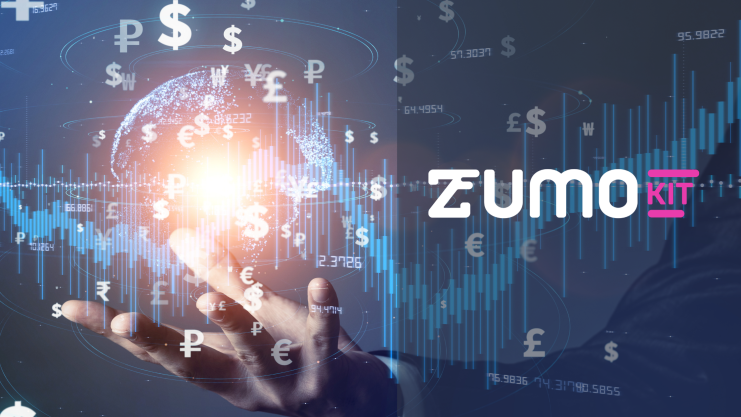Why self-reliance is the future of crypto

We humans tend to put a lot of trust in other people, not to mention the institutions, frameworks and conventions which govern our societies. Big decisions are outsourced to politicians. Our food is grown by faceless farmers and bought from equally anonymous supermarkets. Banks store our money in accounts they control, with deposits here in the UK protected by the government so that even if disaster wipes out our funds we can expect to be at least partially reimbursed.
In his famous essay, the American writer and abolitionist Ralph Waldo Emerson said that “discontent is the want of self-reliance: it is infirmity of will”. In other words, we are dissatisfied because we are not standing on our own two feet.
Today, technology is empowering people in unprecedented ways and allowing them a measure of independence which would have been wholly unfamiliar to 20th century consumers. Nowhere is this more true than in the new economy being built around cryptocurrencies.
One of the major benefits of using digital money is self-reliance. Through crypto, we can become our own bank and take responsibility for our money without relying on the intermediaries and middlemen who, it can be argued, became rich because our systems relied upon their work.
Be Your Own Bank
When your savings are stored and managed by a financial institution, you own the money but you don’t control it. To access cash, you must request a withdrawal, obey the limits on how much you can take out and generally bow down to rules which are set by someone else. Cryptocurrencies are different, which is one of the many reasons why they are so revolutionary.
Instead of using some arbitrary system designed by a bank or government, crypto deposits are kept in a wallet guarded by advanced cryptography. Wallet users are given a public address and a private key which allow them to send and receive tokens. A private key is a long number generated randomly when you choose a wallet. Lose this key and you risk losing access to your money. A private key gives you – and you alone – access to your funds.
Some crypto wallets store these keys so that users can regain access to their funds in case of disaster. These wallets are known as custodial and work a lot like banks and other legacy institutions. At Zumo, we believe this contravenes the revolutionary promise of cryptocurrency, which is why we offer users a non-custodial wallet. We don’t have access to our users’ private keys, which means we don’t have access to their funds. This is as it should be.
A Private Key To Freedom
Each crypto wallet has a public address, which can be thought of a bit like a mailbox, with the private key used to unlock the box.
Whenever you want to send or receive tokens, the party you’re transacting with is given a public key generated from your private key. It is almost impossible to reverse this process, which means your private key stays, well, private. Hand over the public key to someone else and you can begin to trade cryptocurrencies, with each transaction signed digitally using your wallet’s private key.
We know the blockchain removes the need for middlemen and intermediaries. Put simply: the blockchain is a ledger of transactions distributed to people across a network. Everyone on the network has a copy of the ledger and therefore it can be ascertained that all copies are the same.
Both the blockchain and non-custodial wallets protected by private keys share this decentralised nature. There is no central authority governing Bitcoin and if you’re a non-custodial wallet user, the same can be said of your money. If you want to take your cryptocurrency savings out, cash them in and donate all your money to a good cause like WasteAid, no-one is going to stop you. Try that at a bank and you’ll quickly hit a withdrawal limit, the fraud detection department will be on the phone and the fun will be over pretty quickly.
Taking responsibility with a non-custodial wallet confers obvious benefits. You’re less likely to be hacked, for instance. Store your money in a traditional custodial wallet and it seems like a hack is more or less inevitable. In 2020 alone, there were billions of dollars stolen during cryptocurrency heists. If your money is stored with a big custodial provider, you risk getting caught up in a data breach. If you have one wallet protected by a private key, you’re extremely unlikely to get hacked.
There’s also the small thing of dodging the attention of governments and other nosey authorities. If you’re clever with your crypto, you are free to use your money in any way you wish, safe in the knowledge that only you have access to the wallet.
With great power comes…
…great responsibility, of course. We’ve all heard the story of the Welshman who put a harddrive in the bin and later realised he’d thrown away a fortune because he kept his private keys on that drive. This story reflects one important lesson: don’t store your private keys on a computer because it’s inviting disaster. Putting this information a folder marked “private keys” on your desktop is like leaving your windows wide open with all your jewellery on display. Storing it on cloud platforms is also a very bad idea, because hackers will find a way to get to it.
The best option is to write it down somewhere safe. Ideally, you should keep several copies of the information because the liberatory promise of non-custodial wallets can be a pitfall for the unwary. It’s great to be your own bank, but you need to take responsibility for making sure burglars don’t break in. After all, if you can’t trust yourself, who can you trust?